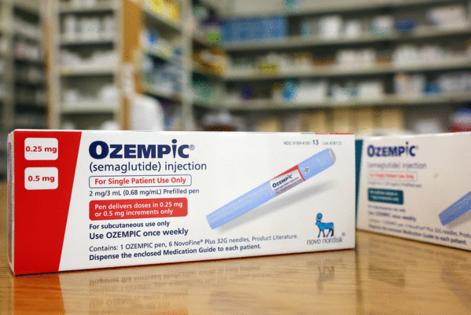Alzheimer's drugs eyed as next big obesity-like opportunity
Published in Business News
Investors seeking the next obesity-like market opportunity will be closely watching developments related to treatments for Alzheimer’s disease in 2025.
Companies including Biogen Inc. and Eli Lilly & Co. have spent billions of dollars on developing potential treatments, while others including Novo Nordisk A/S and Roche AG are also investigating the brain-destroying disease. Any breakthroughs in trials or drug approvals could have a big impact on share prices as investors factor in potential sales for a market which Bloomberg Intelligence estimates could reach $13 billion by 2030.
“The opportunity remains huge,” said Chris Eccles, a portfolio manager at AXA Investment Managers. “If we get a strong disease-modifying drug and very positive clinical trials, numbers can go back in models and forecasts can be revised upwards quite significantly, quite quickly.”
Firms developing Alzheimer’s drugs have already seen big peaks and troughs. Biogen shares soared 44% on a single day in November 2020 after news that an experimental drug appeared to be effective, before plunging days later after failing to get support from a panel of Food and Drug Administration advisers. Despite getting approval the following year, Biogen ultimately ditched the drug after years of debate over its efficacy. Many other drugs have also failed.
Two of the newest drugs to treat the disease are currently available in the US. Lecanemab, from Biogen and Japanese partner Eisai Co., is sold under the brand name Leqembi, and donanemab from Eli Lilly is branded as Kisunla. Both drugs work by reducing the brain amyloid levels in patients in the early stages of Alzheimer’s, and act to slow the disease. Still, they don’t stop or reverse it, while both treatments have side effects that include brain bleeding and brain swelling.
“It could be a year where we also see a bit more clarity in terms of traction for the drugs that are approved so far,” said Gregoire Biollaz, senior investment manager at Pictet Asset Management.
Here are some of the stocks to watch in 2025:
Biogen and Eisai
Patients currently on Leqembi take it as an infusion, though Biogen and Eisai have also developed a version that can be administered at home. In focus for investors in 2025 will be whether the injectable formulation wins regulatory approval, which would mean patients won’t have to travel for treatment.
Another related stock to watch is Sweden’s BioArctic AB, which discovered Leqembi and is entitled to royalties for the drug. The shares have surged more than eightfold since going public in 2017, but have struggled in recent years amid a challenging launch for the treatment.
Eli Lilly
Eli Lilly’s Kisunla treatment received FDA clearance in July 2024, and investors will get more of an indication in the coming year about how adoption of the drug will fare against Leqembi.
The company is also evaluating a follow-on drug, known as remternetug, via injection as well as infusion. The late-stage trial will assess the formulations for amyloid plaque clearance and safety, which could signal whether remternetug will be a better treatment option than Kisunla, according to Bloomberg Intelligence analysts. Trial results for remternetug could be released at the end of this year or early 2026, according to BI’s Jean Rivera Irizarry.
Novo Nordisk
A study last year indicated that patients taking semaglutide were at significantly reduced risk of being diagnosed with Alzheimer’s. Novo Nordisk is currently testing whether the ingredient — which is in its diabetes and weight-loss drugs — can benefit patients with early Alzheimer’s disease. Late-stage trial results are expected in the second half. Bank of America analysts including Sachin Jain see potential for the stock to rise about 10%-15% if the data is positive, but flagged that it is “high risk.”
Roche
Roche has completed the first part of an early-stage study for trontinemab, a drug designed to clear amyloid which deploys a brain shuttle technology to slip past the protective blood-brain barrier. The company is awaiting more data before deciding whether to proceed with late-stage trials, and UBS Group AG analyst Colin White sees this data potentially being available in the first half. For Barclays Plc analyst Emily Field, it seems “far more likely than not” that Roche will go ahead with more trials. Trontinemab is a newer version of gantenerumab, Roche’s previous big bet on Alzheimer’s that ultimately failed to slow cognitive decline.
UCB
Belgian biotech firm UCB SA is expected to decide whether to continue developing bepranemab, though no timeline has been provided. A mid-stage study last year missed its primary endpoint, though showed that the experimental drug slowed cognitive decline and the rate of accumulation of tau, a protein that creates tangles within brain cells. TD Cowen analyst Stacy Ku noted that bepranemab has a “clean” safety profile that “should allow for combination treatment.”
©2025 Bloomberg L.P. Visit bloomberg.com. Distributed by Tribune Content Agency, LLC.












Comments